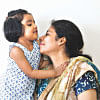Life skills children should know by age 10

A burning debate that has been making the rounds recently is that only a handful of people will ever need the principles of algebra in their lives, but everyone will need to do their taxes at some point. Schools cannot and should not have to teach crucial life skills to children because those are best learned under the loving guidance of guardians. Even if 10 is too early to learn how to do complex calculations, there are a good number of basic life skills every child should know by the end of the first decade of their lives. Here's what child-development experts, career planners and business leaders recommend:
Using a map and compass
Being able to read a map is important. Spatial awareness prevents children from getting lost, and is especially handy now, as we encourage them towards outdoor play. Allow them to draw out a map of their neighbourhood and challenge them to navigate their way to school as you drive them.
Carrying a conversation
Too many children nowadays have stinted conversations, even with parents, as they enjoy the disassociation that comes with texting. Having to continue a face-to-face conversation can become awkward or too much trouble. Banning devices from the dinner table can be a great first step towards teaching children to hold a conversation.
Handling alone time
As adults, we often find ourselves getting anxious in situations when we have to be alone. This is because most of us were never taught to enjoy our own company. It has become exceedingly important to teach children to be comfortable alone because times have changed and people may not always be available to entertain them.
Exercising
Great physical exercises, swimming and riding bikes are fun and get children comfortable with water and navigating paths from an early age. It is recommended to get kids enrolled into a swimming course by the age of 4, so that they have enough time to master the skill, minimising the possibility of accidents. Biking can start as early as 2 or even 3!
Caregiving
Caring for a pet or a house plant can teach children accountability and responsibility from an early age. This can make them empathetic, rather than impatient with vulnerable parties such as older people, younger children and strays. Taking care of oneself is just as important. Teach children how to clean a and bandage a small wound, fire first-aid, icing a swollen injury or simply dialling 999 for emergencies they cannot handle.
Basic life skills
Children do not have to be star-rated chefs but should know how to cook an egg and make a sandwich by the time they are 10. They should know when to clean out a room, declutter when it's time, and everything about personal hygiene.
Saving
Saving is difficult for the best of us, so it is very important to start children on it early. Encourage them to save half their pocket money and when they reach a substantial amount, start a savings account with them. Be sure to show them how they can check their balance online and how they can get on a long-term savings plan.

 For all latest news, follow The Daily Star's Google News channel.
For all latest news, follow The Daily Star's Google News channel. 








Comments